
RVRC Courses
RVRC offers a two-year programme aligned with the enhanced NUS General Education Curriculum. RVRC courses are mapped to four of the six General Education pillars, namely: Community and Engagement (GEN, Critique and Expression (GEX), Cultures and Connections (GEC), and Singapore Studies (GESS). All courses are taught for one semester and carry 4 Units each.
GEC Cultures and Connections
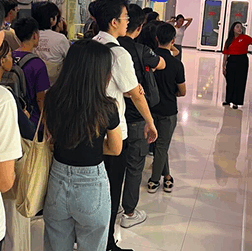
RVC1000 How in the world do we get along?
4 Units, S/U option
Our world is figuratively shrinking. We increasingly encounter people who are different from us, such as in the areas of cultural backgrounds, language, religion, and values. We have to navigate these differences in our communities and workplace and doing so requires us to effectively connect with people and work across cultures. With a focus on Emotional Intelligence (EI) and Cultural Intelligence (CI), this course empowers one to gain greater appreciation of cultural diversity and enhanced agility in collaborating and communicating in cross-cultural settings.
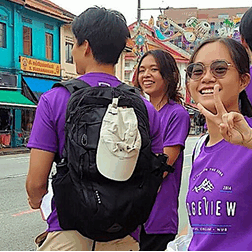
RVC1001 The Rocky Road to SDGs
4 Units, S/U option
Diverse cultural values and norms can enable or hinder meeting the UN Sustainable Development Goals (SDGs). In this course, students will learn how culture impacts social sustainability and reassess their understanding of socio-cultural issues in regional and global contexts. Through team-led seminars, fieldtrips, roleplay, interviews, and critical discussions, students will learn to navigate cultural differences and develop solutions that address socio-cultural challenges in moving towards social sustainability. By exploring the complex relationships between individuals, society, governments, and supranational institutions, this course will develop students into sensitive global citizens with a holistic understanding of culture and the social pillar of sustainability.
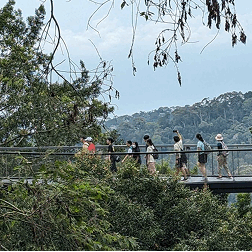
RVC2000 Culture and Sustainability in Southeast Asia
4 Units, S/U option
Southeast Asia is a region of diverse cultures with a myriad of sustainability challenges. It presents a rich context to explore concepts, practices, and issues in preserving the region’s cultural and natural heritage while pursuing economic and social development. In this course, students will critically examine the relevance of culture as the fourth pillar of sustainable development, alongside economic growth, social inclusion, and environmental conservation. By connecting classroom learning with field experience within Southeast Asia, students will develop an appreciation of different ways in which diverse communities interact with nature and recognise the need for the localisation of sustainable development.
GEN Communities & Engagement
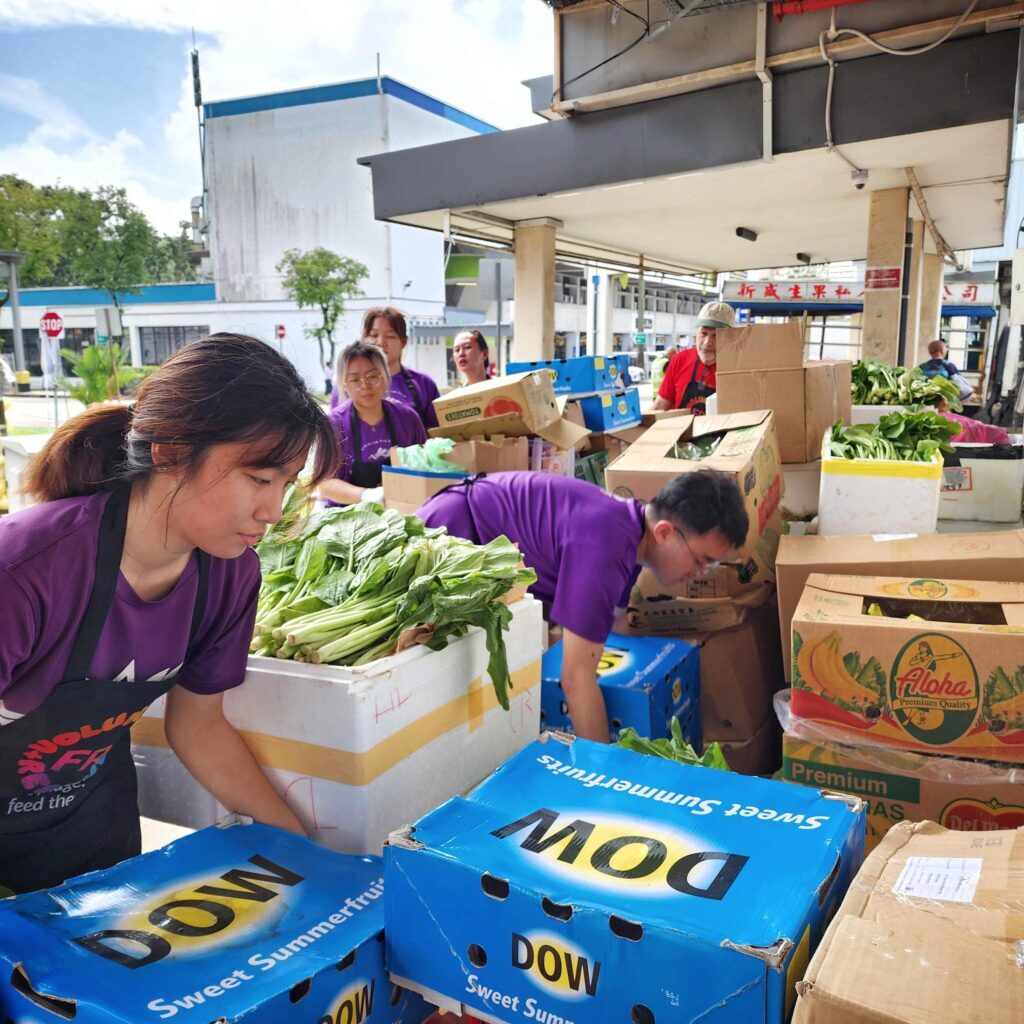
RVN2000 Engaging Communities in Sustainability
4 Units, S/U option
This interdisciplinary course takes a close look at how we consume resources in our daily activities and the resulting sustainability issues, through a holistic analysis of the underlying social, environmental and economic drivers. Through field trips and direct engagement with local communities, we will contextualize these issues to highlight the ways in which planetary resource consumption impacts communities. We will work collaboratively with communities to combat sustainability issues. Synthesizing these learning experiences to evaluate current solutions, we will position ourselves on the issue of resource consumption with respect to the role of the industry, the community and the individual.
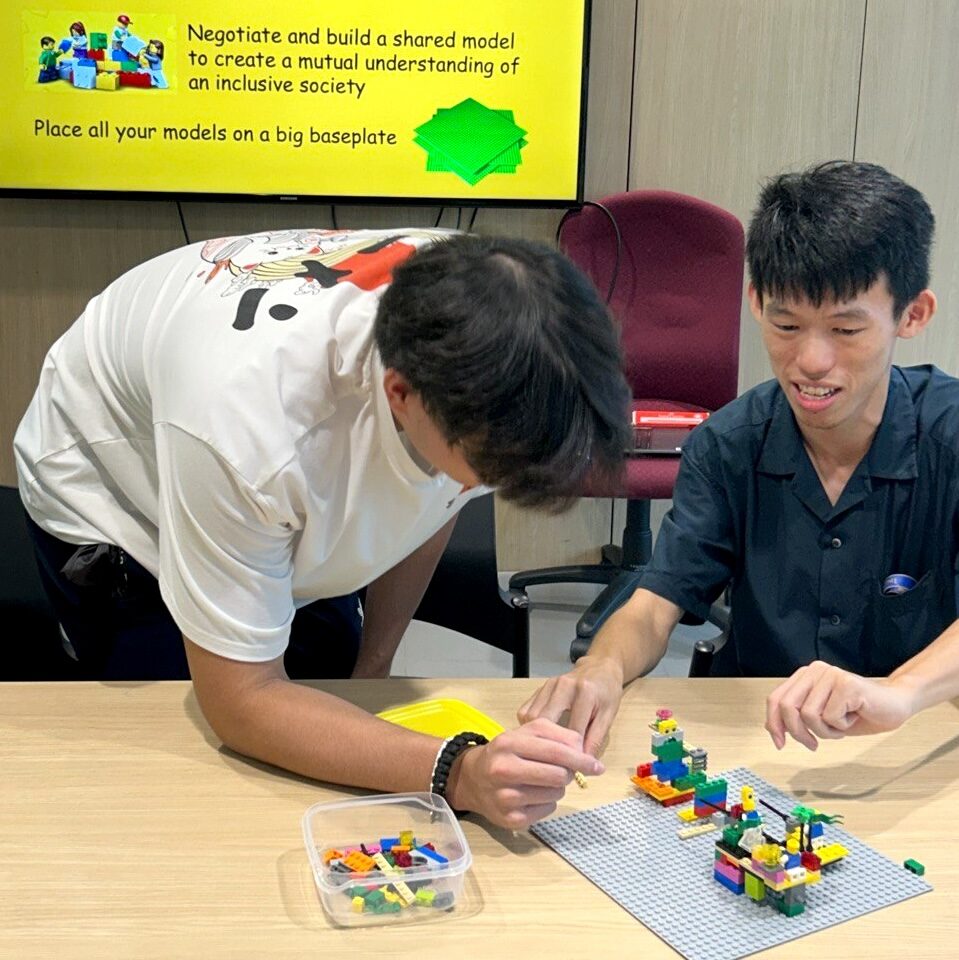
RVN2003 Understanding Disability and Fostering Inclusivity
4 Units, S/U option
This course is designed to empower students with a comprehensive understanding of inclusivity concerning people with disabilities (PWDs). An inclusive society offers numerous advantages encompassing social and economic realms. Studies have shown that a diverse workforce, gender equality, and the inclusion of PWDs in education and the workforce enhance social cohesion and contribute positively to economic growth. Yet, challenges with implementation persist. By reading this course, students will develop foundational knowledge, discerning perspectives, and the ability to foster an environment for inclusivity and parity of opportunities for PWDs in the society.
GESS Singapore Studies
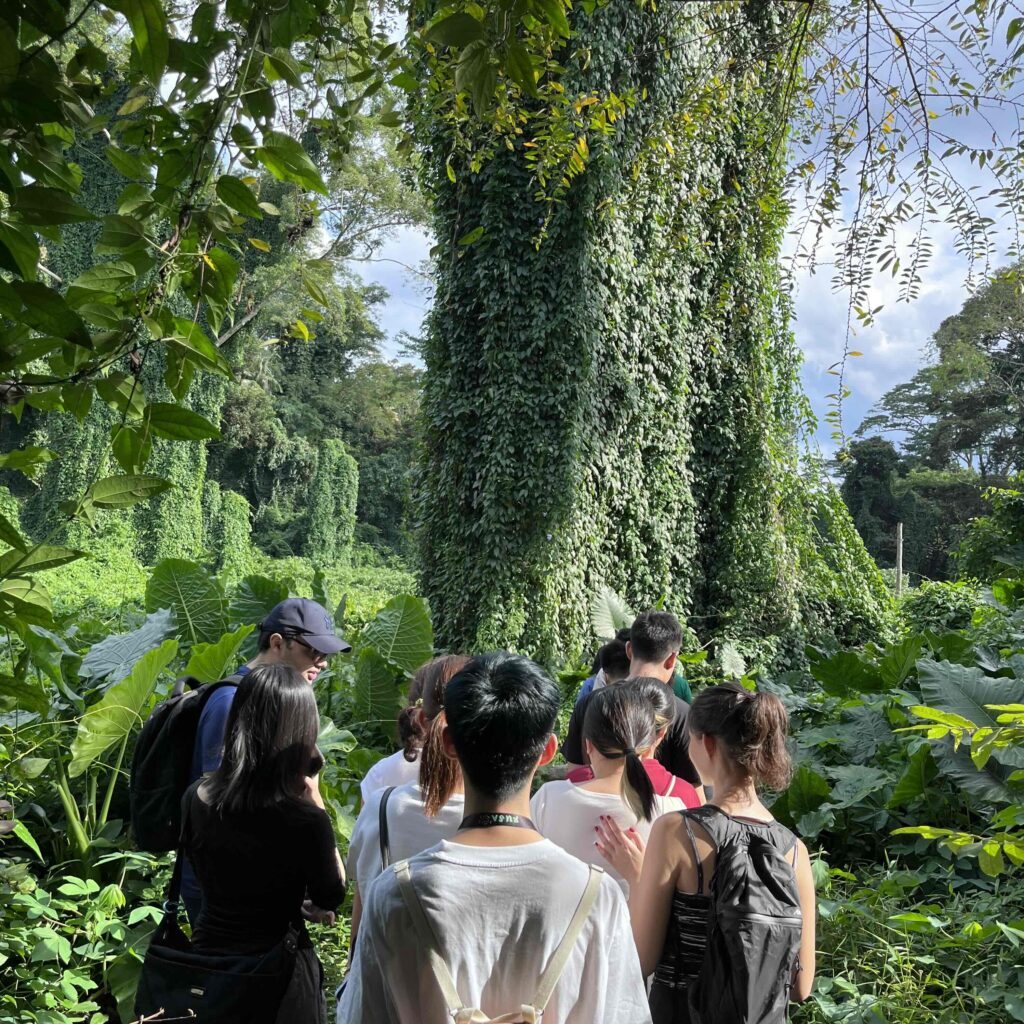
RVSS1000 Exploring Sense of Place
4 Units, S/U option
How do we experience, interact with and value different places? This course adopts an interdisciplinary approach to consider how places can sometimes reinforce ecological, historical, economic, political, and other constructs, and how these in turn influence the way we relate to and ascribe meanings to places. By connecting their own observations made during field trips with research and group discussions, students will also examine the contestations and shifting identities that arise when places undergo transformation and development. Firmly aligned with the goals of Sustainable Development Goal #11 Sustainable Cities and Communities, as well as the Singapore Green Plan 2030 pillar on City in Nature, this course will help students develop awareness on the affordances of a place and help them imagine its more sustainable future.
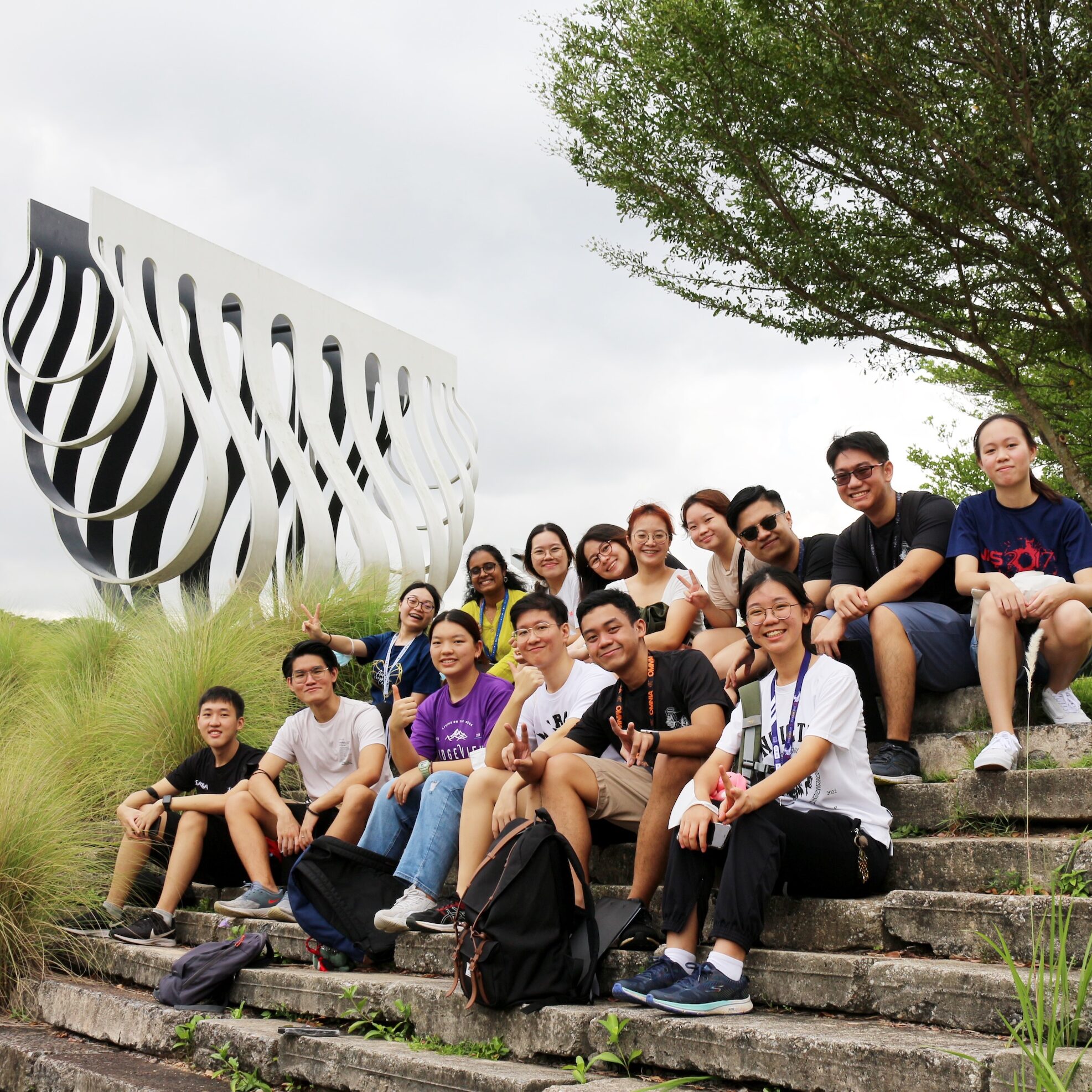
RVSS1001 Imagining Wakanda: Cities for work, life, and play
4 Units, S/U option
The world stands at a pivotal time of intensifying urbanization and climate change. Grounded in the lived experience of Singapore’s urban spaces, this course adopts a critical approach to understanding the impact of these factors on cities. Using Wakanda as a placeholder, students will understand the makings of a city in meeting the United Nation’s call of Sustainable Development Goal #11 to “make cities and communities inclusive, safe, resilient and sustainable.” With these insights, students will participate in envisaging liveable cities of the future as they become an increasingly important magnet for work, life, and play. In the process, students will also recognise their role as active citizens in contributing meaningfully to the Singapore Green Plan 2030 pillar on City in Nature.
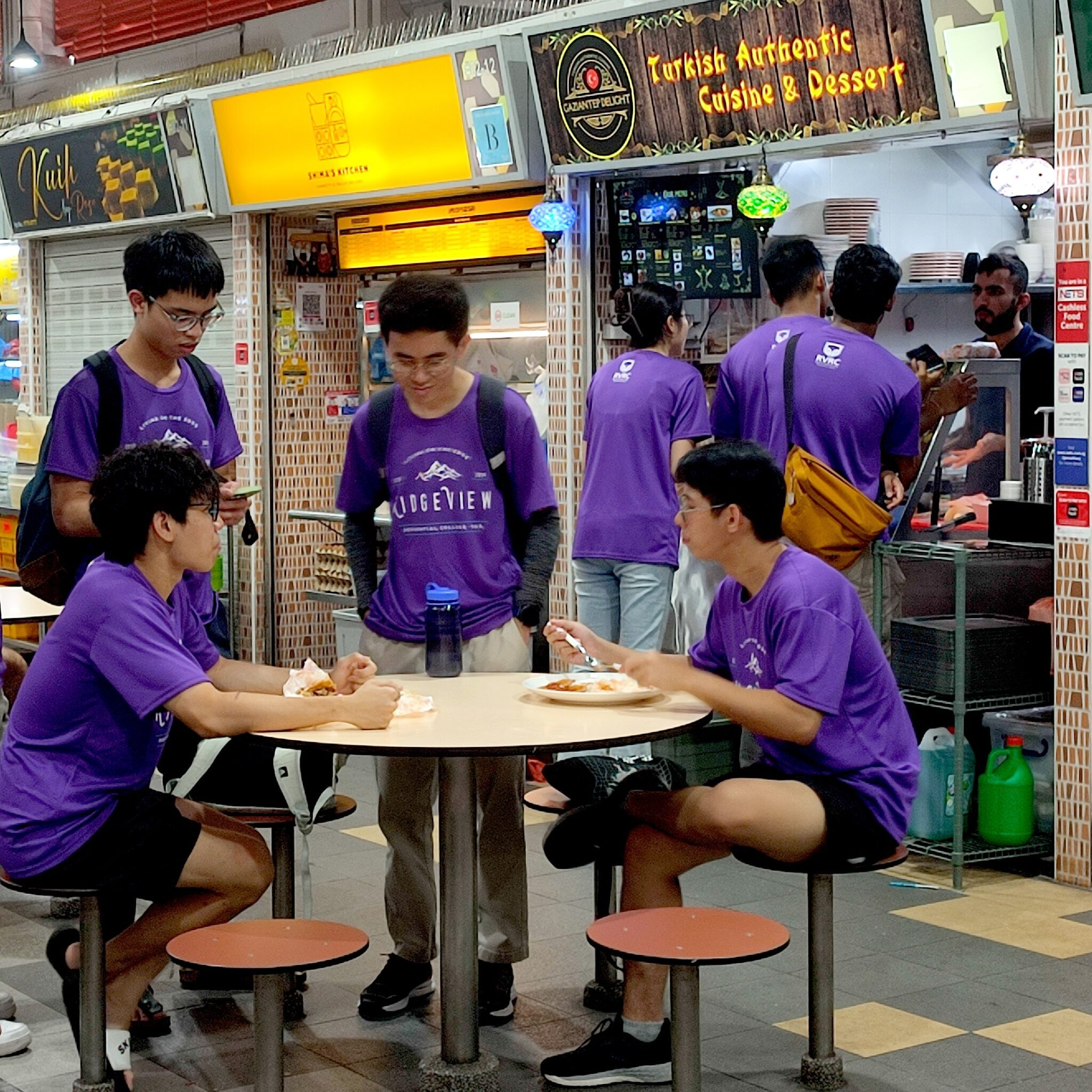
RVSS1002 Feeding the belly of a nation
4 Units, S/U option
Singapore’s present unique combination of cultures is a rich and diverse foodscape steeped in history. Our hawker culture listing to the UNESCO List of Intangible Cultural Heritage highlights the importance and value we place in our food heritage. This course opens the doors to rethinking the role food plays in our daily lives, in our culture, in society, and globally. The various topics covered over the course provide opportunities for thinking about the materiality of food (food sustainability and security), the social construction of foodways and food heritages, and how Singapore’s food future should or could progress.
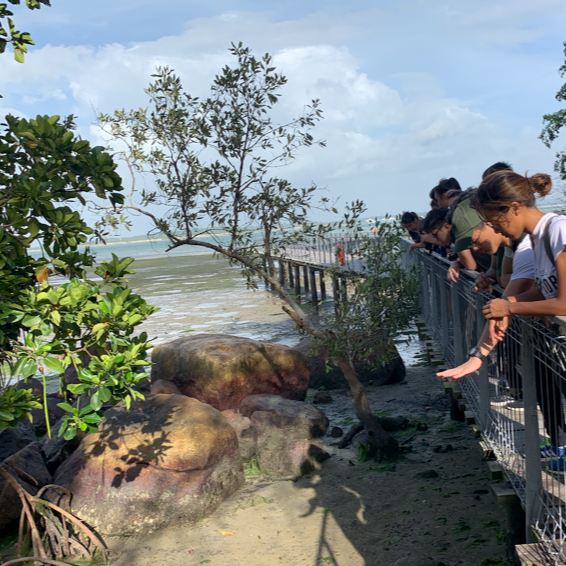
RVSS1003 Communicating the value of Singapore’s Natural Heritage
4 Units, S/U option
Singapore is a highly urbanised country with less than 5% of its primary vegetation remaining; the past few decades of urbanisation placed tremendous stress on conserving its green spaces. Many Singaporeans have low awareness of the importance of its natural heritage. This may lead to inadequate understanding of tradeoffs and tensions between development and conservation. As such, learning science communication and framing of conservation messages, is a useful in preserving Singapore’s natural heritage and also applicable other contexts that require effective persuasion. This course is structured around an interactive and hands-on learning model, drawing from the principles of outdoor education. Students will delve into the essential concepts and perspectives on Singapore's rich natural heritage, as well as the fundamentals of communicating science effectively. This will be achieved through a blend of in-class seminar discussions and practical field trips to significant ecosystems like the Sungei Buloh Wetland Reserve and Pulau Ubin.
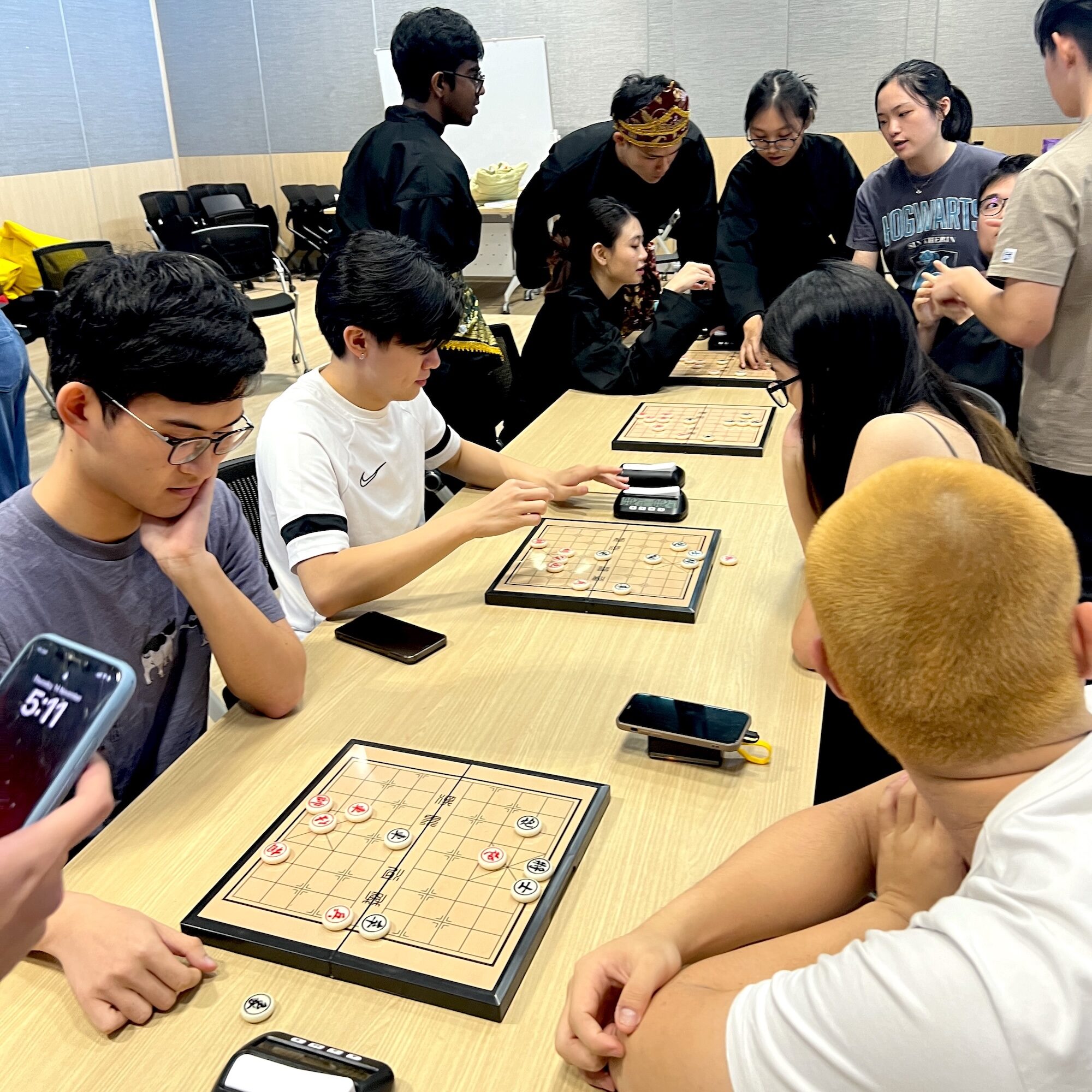
RVSS1004 Uniquely Singapore: Regardless of Race
4 Units, S/U option
Racial harmony has figured centrally in Singapore’s founding and existence, with an eye towards maintaining social cohesion. However, its prominence on the national agenda is matched by a strong reticence towards the topic in public discourse. Through seminars, cultural immersion projects, and learning from external partners, this course adopts a critical lens to discuss the role and impact of race in societal relations in Singapore. In the process, students will learn to interrogate the notion of “race” through real-life examples and gain skills to respond constructively in situations involving a culturally diverse society such as Singapore.
GEX Critique and Expression
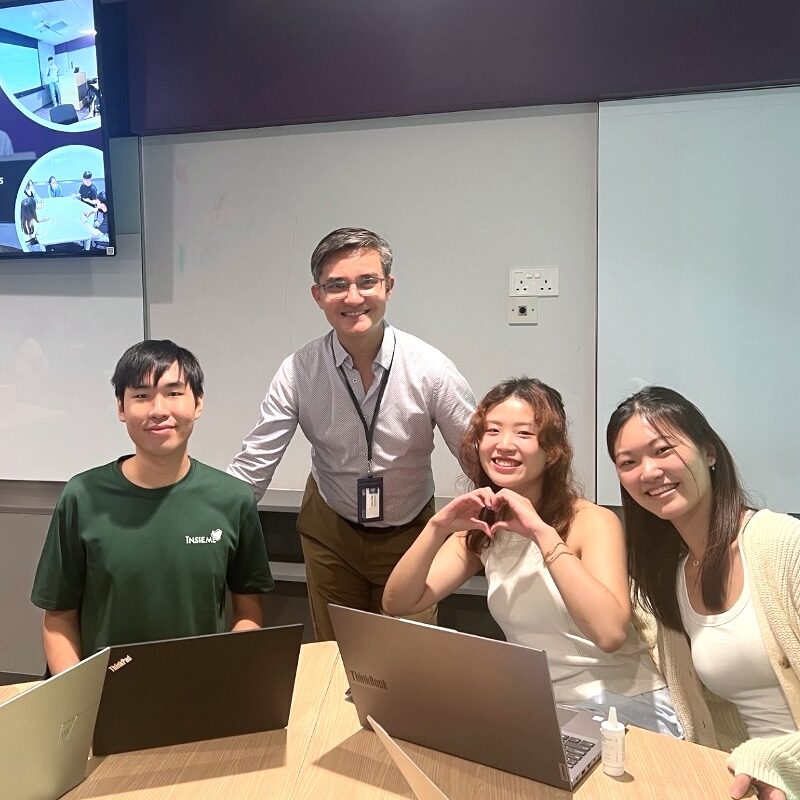
RVX1000 Citizen Speak: Persuasion and Polarization in Society
4 Units, S/U option
How do people engage with issues that matter to society? In this course, students will critically examine how citizens and their leaders use communicative resources to deal with issues pertaining to sustainability, processes of inclusion and exclusion, and public participation in various contexts, among others. What rhetorical strategies do they mobilize to encourage dialogue needed to create agreeable solutions to the burning issues of the day? What strategies hamper such a dialogue to take place? By pursuing these questions, the students will develop a critical disposition towards the role of civic discourse in shaping public issues.
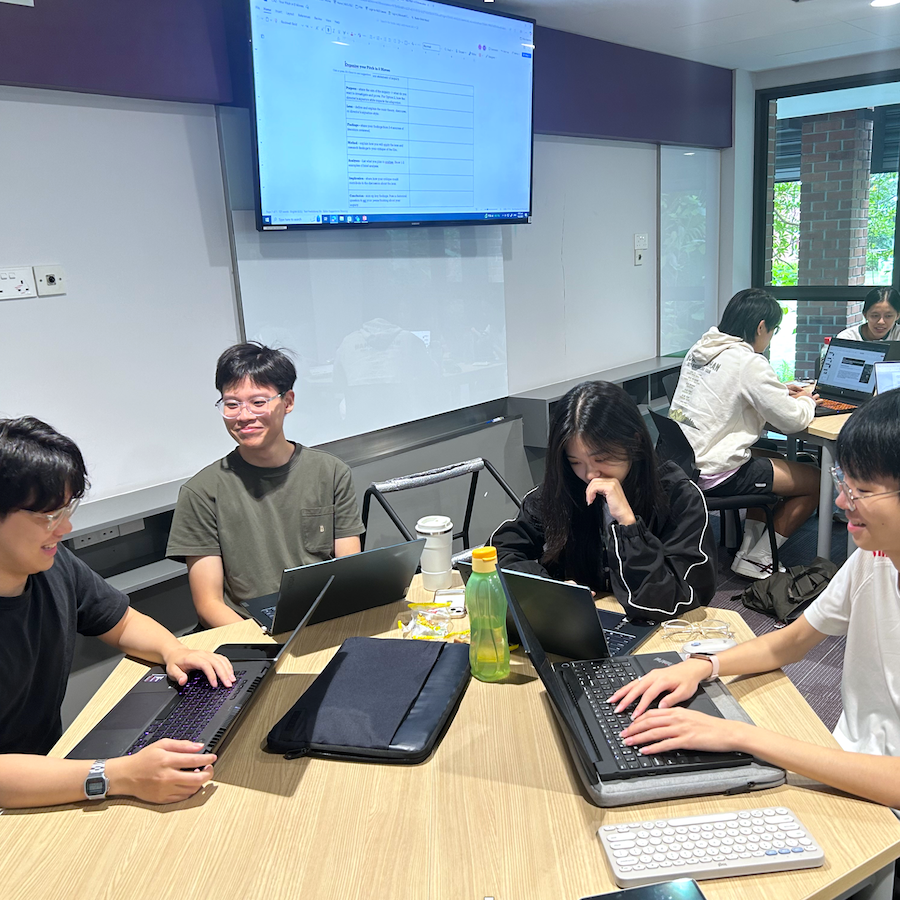
RVX1001 Science Fiction and Society
4 Units, S/U option
Science Fiction serves as a launchpad that inspires innovative ideas and space to critically evaluate contemporary issues such as race, gender, technology, and climate change. This course engages students’ thinking on one of the most important and influential popular media to develop broader insights and perspectives on current social trends that will help them both within and after university. Students will construct a thoughtful critique of science fiction topics found in media like film, television, short stories, or video games. Working collaboratively, they will present questions and reflections to peers to increase their critical expression skills.
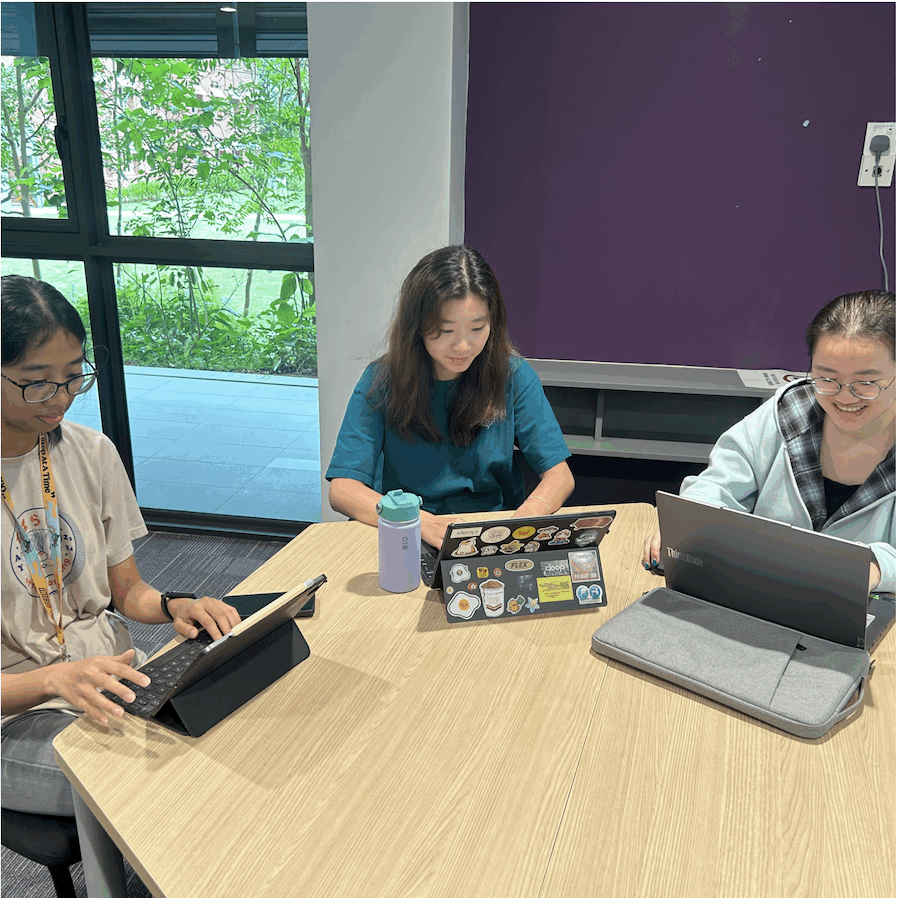
RVX1002 ‘What do you mean?’ Meaning and communication in intercultural contexts
4 Units, S/U option
This course examines meaning and culture. It draws attention to issues in translation and intercultural communication and advocates the use of a framework that facilitates effective communication with cultural others at work or elsewhere. As cultural beings, we express meaning in a cultural context, but do we understand the implications? We assume that English words have the same meaning across cultures, but how valid is this assumption? We learn Standard English, but does it embody the cultural meanings we want to express? This course raises awareness of our cultural selves and helps students develop meaningful connections with cultural others.
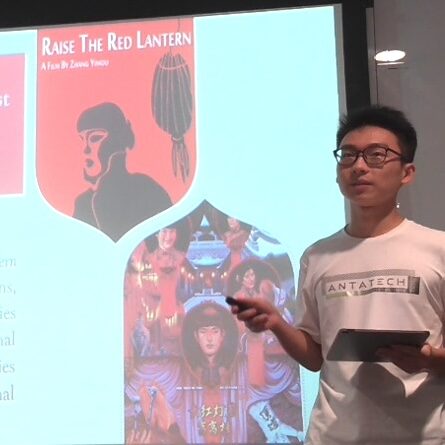
RVX1003 Print to Screen: Analysing Film Adaptation
4 Units, S/U option
In this course, students will examine how various literary texts are adapted into films. They will do so by interrogating how directorial techniques, institutional constraints and related socio-cultural contexts inform adaptations. Specifically, students will watch and analyse cinematic adaptations of plays, short stories, and comics to bring to the surface how aesthetic elements ranging from mise-en-scene to socio-cultural factors influence filmmakers and studios’ motivations. In the process, students will develop a systematic approach in carrying out a critique of adapted films they enjoy.

RVX1004 Cultural Expressions of Science, Technology and Warfare
4 Units, S/U option
Since the 20th century we have witnessed the increased intimacy between science and violence. Eugenics and nuclear warfare, for example, demonstrate the violence of rationalized progress when in the service of war. The increasing threat of rationalized violence today undermines sustainable development by hindering practices necessary for human vitality. In this course, students examine cultural expressions of modern warfare, critically reflecting on what they suggest about the relationship between science, technology and war. Students are thereby encouraged to reflect on the circumstances of armed violence and the need to prevent it.
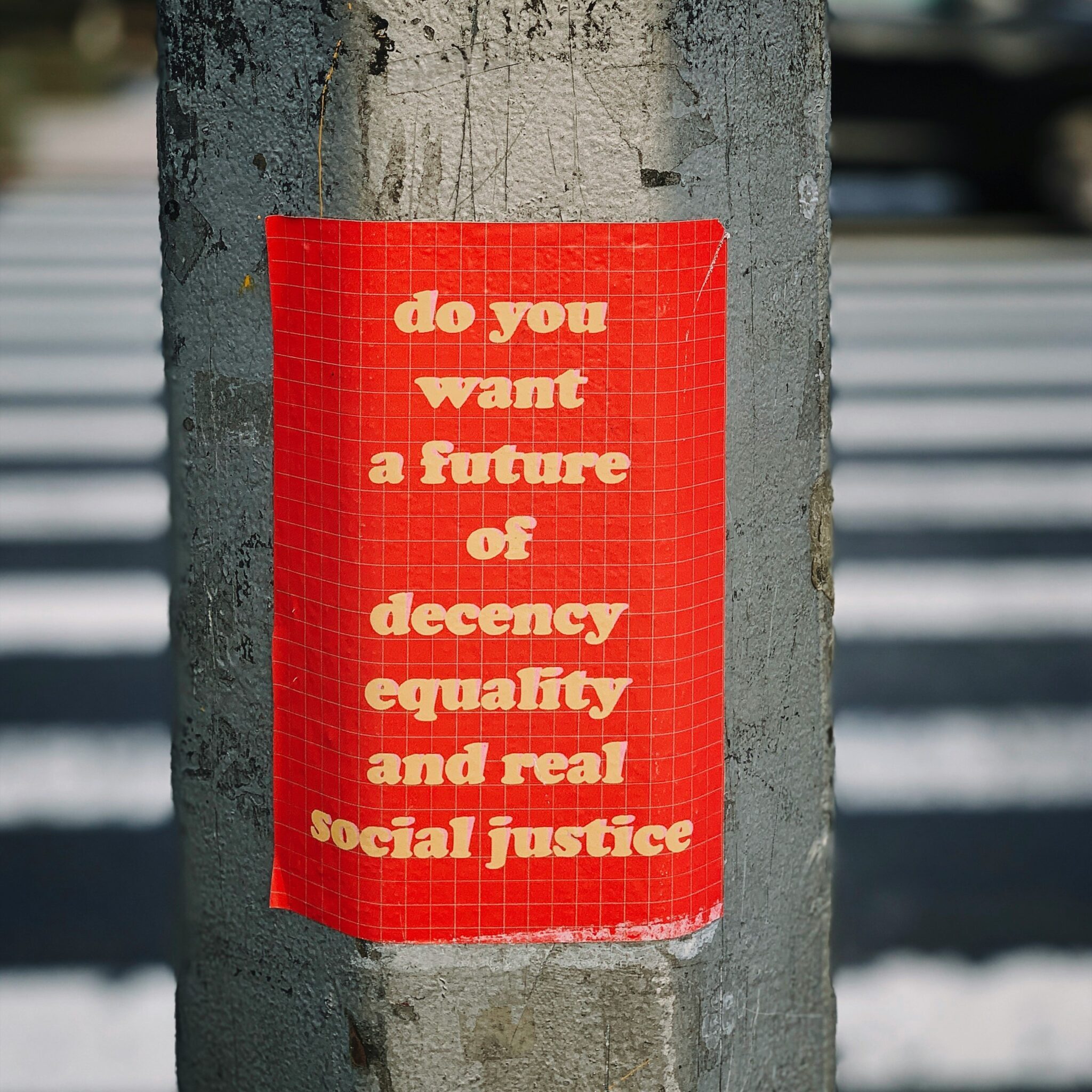
RVX1005 Intersectionality, Identity and Inequality in Asia
4 Units, S/U option
Inequality is a persistent yet complex structural issue in modern societies. As a critical theory, intersectionality explains how inequality is informed by the interaction of multiple identities, including gender, class, race, sexuality, and nationality. By drawing on intersectionality theory, this course examines patterns, implications, and solutions for social inequality in the Asian context. What is intersectionality? What does intersectionality imply in making a fair, sustainable society? With an understanding of intersectionality, students will examine how inequality issues are critiqued in scholarly articles and develop writing skills that express their own perspectives on inequality and identity.
RVRC Undergraduate Teaching and Research Opportunity Programme
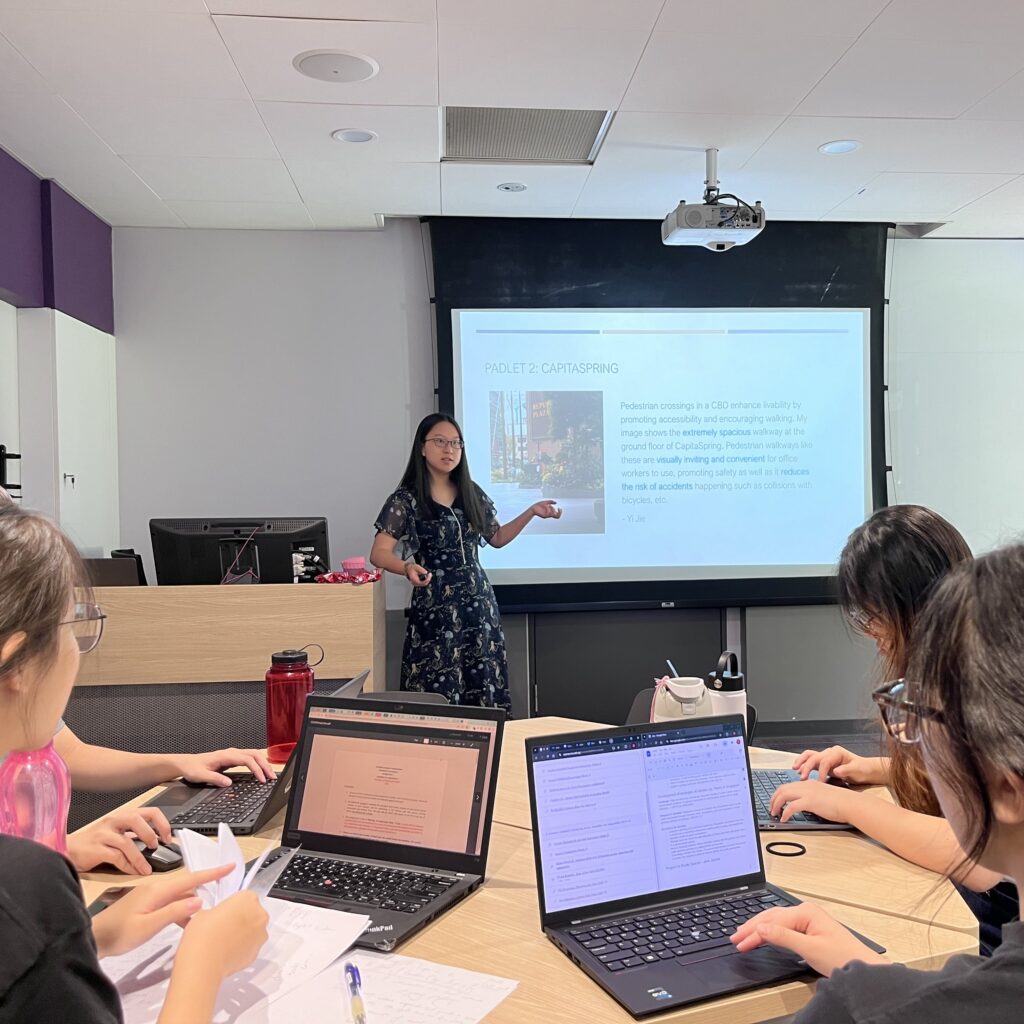
Undergraduate Teaching Opportunities Programme (UTOP)
UTOP is an NUS-wide teaching-focused, credit-bearing programme that exposes undergraduate students to practical skills in teaching. Enrolled UTOP students will receive guidance from assigned academic supervisors at RVRC, and training in foundational teaching knowledge and skills offered by NUS’ Centre for Teaching, Learning, and Technology (CTLT). UTOP course requirements are worth 4 units (equivalent to 130 hours) and count towards students’ Unrestricted Elective (UE) requirements. More information about UTOP can be found at this NUS Website.
RVR2000 RVRC Undergraduate Research Opportunity (UROP)
A UROP involves students working individually or in a team, supervised by at least one fellow from, or affiliated with RVRC. Students will work on an existing research project or design an original project that can be completed in the span of one semester.
A RVRC UROP would focus on research that is aligned with the College's themes of sustainability and workplace readiness, and which is multi or interdisciplinary in nature.
The aim of the RVRC UROP is to support students' academic, research, and professional development through a meaningful and independent research apprenticeship. The UROP is a 4-units graded course and it counts toward students’ Unrestricted Elective (UE) requirements.
Students who intend to take up a RVRC UROP must have completed at least 2 RVRC-coded courses at the point of application and attained a GPA of 3.00 or higher. Please also note that the RVRC UROP does not count towards the fulfillment of the RVRC Programme requirements.
RVR2001 Sustainability Internship
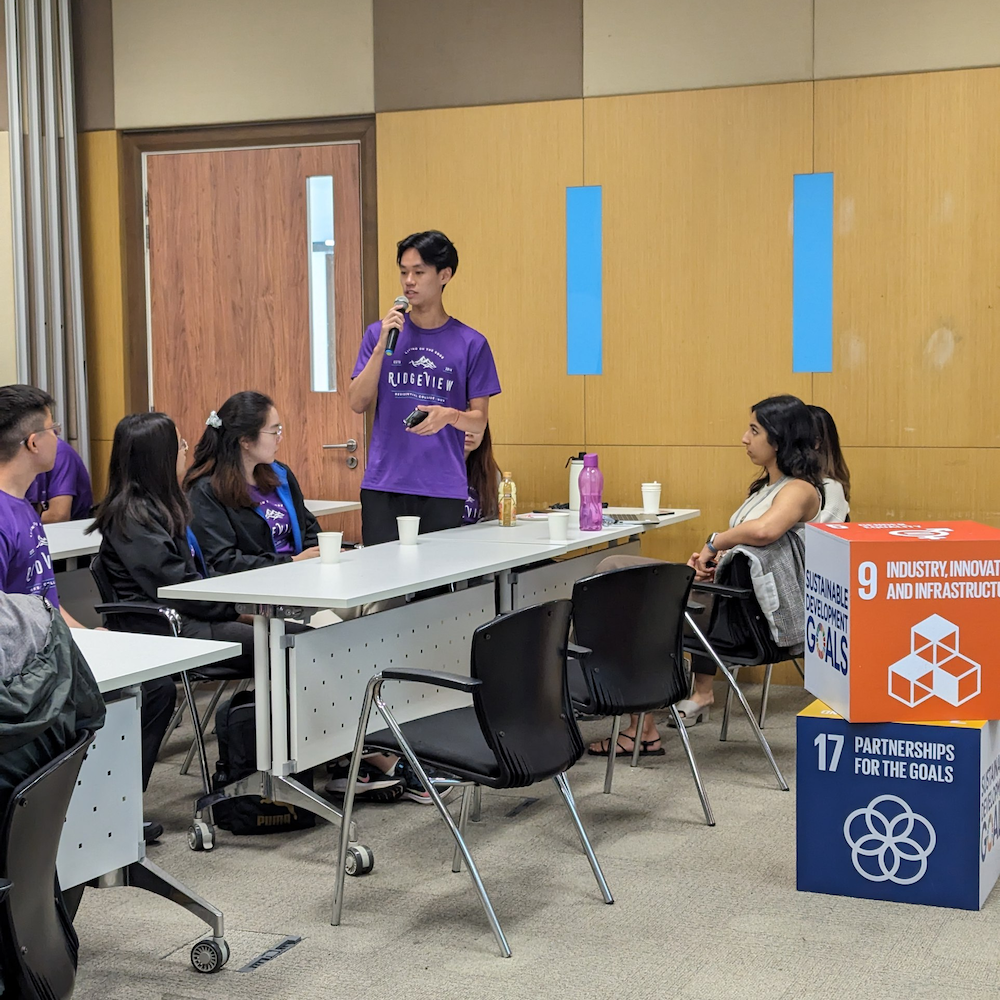
RVR2001 Sustainability Internship
Amid escalating challenges in a rapidly changing world, organisations and institutions that adopt sustainable policies and practices can help advance socially inclusive and environmentally responsible development. How do these entities operate, and what distinctive challenges do they face? This course links theoretical perspectives on sustainability with practical learning through an internship, guided by an Academic Fellow and an Internship Supervisor. This is a 4-unit CS/CU course offered during Special Terms and read as an Unrestricted Elective. It does not count towards completion of the RVRC Programme or the General Education Pillars. Where required, students should seek approval from their home faculties.
RVC1000 How in the world do we get along?
RVC1001 The Rocky Road to SDGs
RVC2000 Culture and Sustainability in Southeast Asia
RVN2000 Engaging Communities in Sustainability
RVN2003 Understanding Disability and Fostering Inclusivity
RVSS1000 Exploring Sense of PlaceRVSS1001 Imagining Wakanda: Cities for work, life, and play
RVSS1002 Feeding the belly of a nation
RVSS1003 Communicating the value of Singapore’s Natural Heritage
RVSS1004 Uniquely Singapore: Regardless of Race
RVX1000 Citizen Speak: Persuasion and Polarization in Society
RVX1001 Science Fiction and Society
RVX1002 ‘What do you mean?’ Meaning and communication in intercultural contexts
RVX1003 Print to Screen: Analysing Film Adaptation
RVX1004 Cultural Expressions of Science, Technology and Warfare
RVX1005 Intersectionality, Identity and Inequality in Asia

